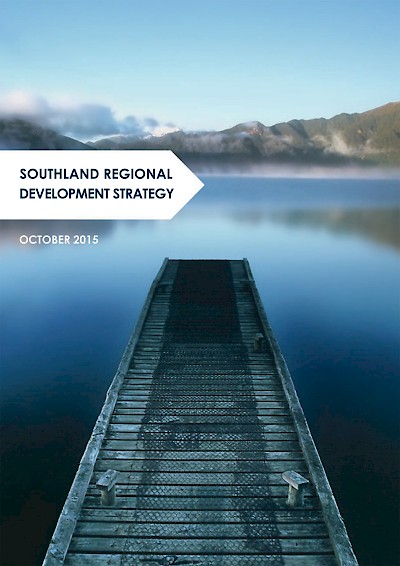Reference group established for Southland aquaculture project
Posted on: 6 April 2017
A reference group has been formed to help ensure all stakeholders are involved in the process of exploring the environmental, cultural and commercial feasibility of salmon farming in Stewart Island.
The Southland Aquaculture Reference Group (SARG) held its first meeting last week, 30th March and is expected to meet again in June once science research reports are available from an ecological survey currently underway at the north arm of Port Pegasus.
The group, includes representation from a wide range of stakeholders, including government agencies, Environment Southland, Southland District Council, the aquaculture sector, Ngai Tahu, Stewart Island community and the Environmental Defence Society.
SARG’s Independent Facilitator Graeme Todd said: “It is important that the process involves local community, local government, central government, iwi, industry and interested environmental groups.
“Our aim is to gather all the facts to inform this process. The detailed scientific data being gathered in the current survey will further facilitate and inform community engagement.”
He added: “We are committed to gaining a clear understanding of all issues to find an acceptable pathway for a social license from the community and interest groups for the development of new water space opportunities for sustainable marine farming in Southland
“SARG will consider all environmental outcomes and landscape, amenity, social and cultural values, regulatory controls and treaty obligations. Output from SARG will take the form of a report identifying where consensus has been reached between participants and issues where agreement has not been reached, along with recommendations.”
Aquaculture, particularly salmon farming, is a key focus of the Southland Regional Development Strategy (SORDS) Action Plan, which aims to diversify Southland’s economy, grow the population and strengthen local business.
Scientists from the Nelson-based Cawthron Institute are carrying out fieldwork including detailed seabed surveys in in an effort to understand whether the area is suitable for aquaculture. The areas identified for survey are all outside of protected marine reserves.
The project is the result of a central-government funded programme put together by SoRDS in collaboration with Ngai Tahu, the Department of Conservation (DoC), the Ministry for the Environment (MfE), the Ministry of Primary Industries (MPI) and the Ministry of Business, Innovation and Employment.
The Government has contributed $950,000 in seed money to kick-start this project. Consultation with community and interest groups, focusing on the environmental, cultural and social implications relating to potential aquaculture activity, began last year.
Salmon can only be farmed in a limited range of areas globally as the fish require cold water. Parts of the coastline of Southland are highly suited to the high value Chinook salmon, originally brought to New Zealand from California.
New Zealand’s aquaculture industry has a goal of $1 billion in annual sales per annum by 2025. The Government supports that goal. Norway, a country similar in size to NZ, currently produces 75 times as much salmon.
ENDS
Information for editors:
Southland has:
- A long history of aquaculture research including salmon, oysters, scallops, green-lipped mussels, blue mussels, seaweeds, cockles, kina, paua, sea snails and crayfish
- Proven engineering and marine construction industries
- Existing experienced fishing and aquaculture workforce
- The longest coastline of any region in New Zealand, stretching 3400km
- Cold sea temperatures, which are ideal for aquaculture.
About the SORDS strategy
The Southland Regional Development Strategy was initiated by the Southland Mayoral Forum in late 2014 with the simple goal of 10,000 more people living in Southland by 2025.
The strategy sets out to address this issue through actions that will make a decisive difference and by doing a few things well. Success in a few critical areas will have knock-on effects.
The strategy identifies that Southland has the potential for greater diversity and growth. It needs a stronger urban culture, new industries, the ability to extend our existing industries and a strong social sector.
For further information contact, Sarah Hannan Programme Director 021 244 4435

